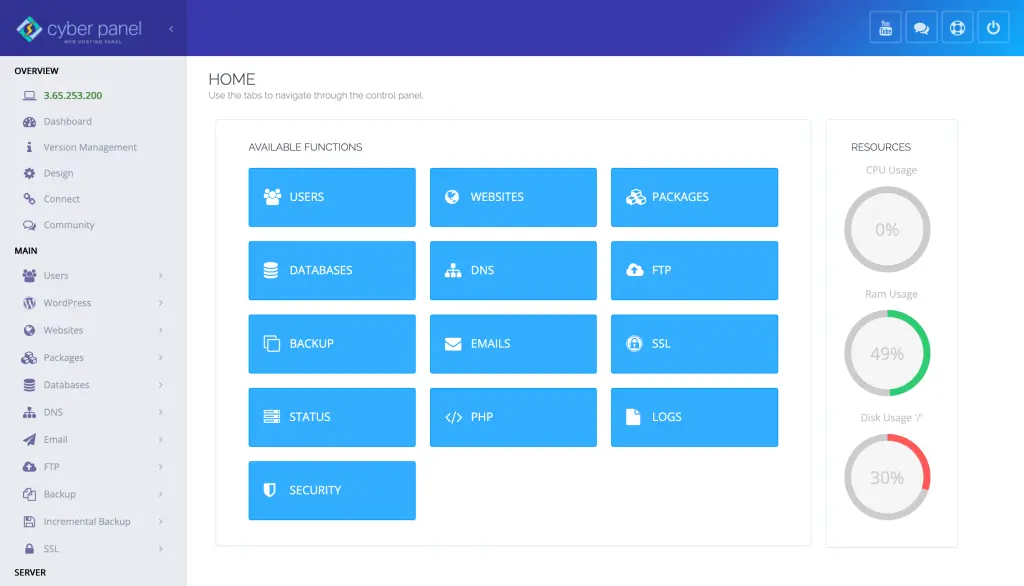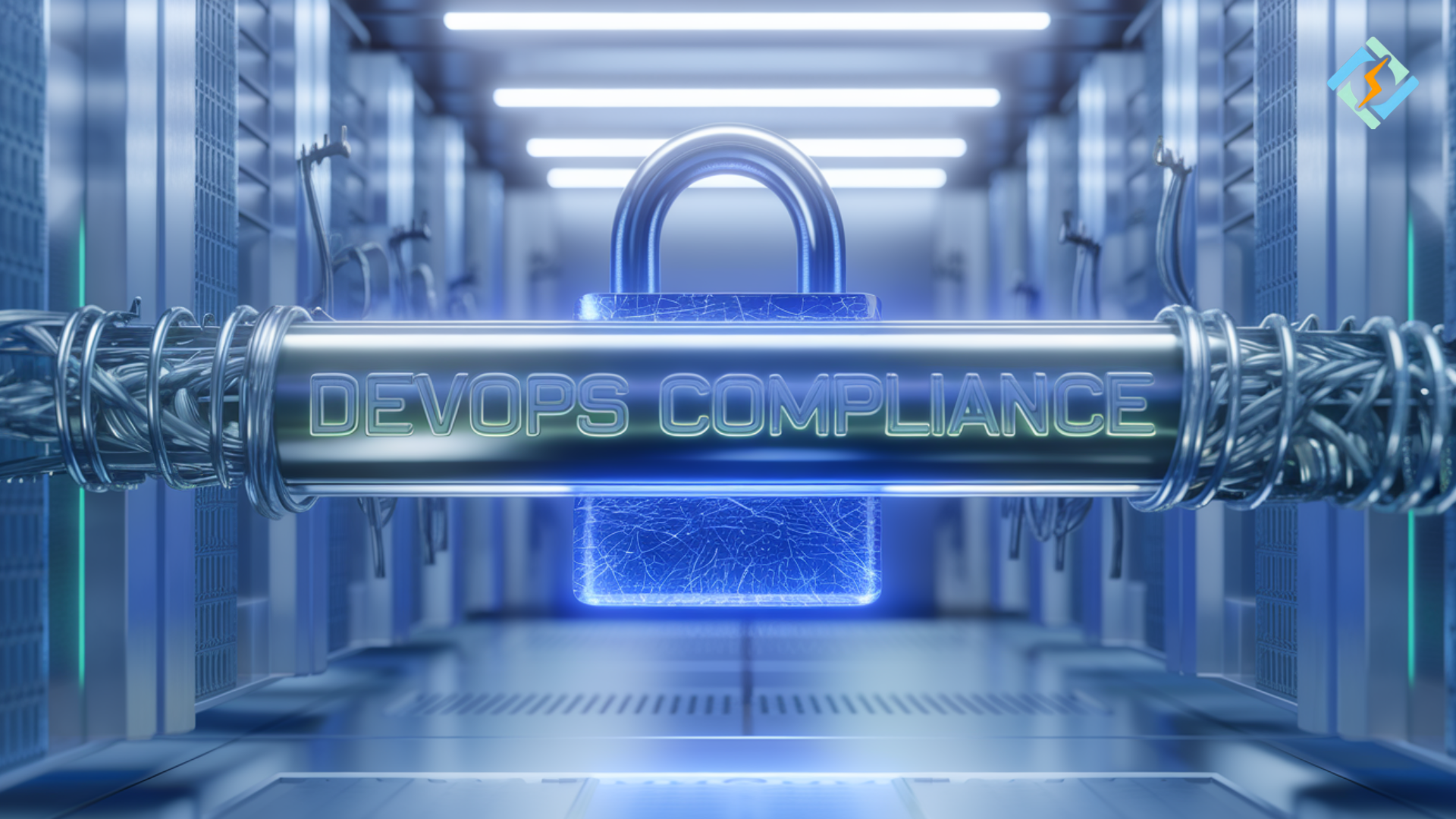In the rush to move fast, many teams neglect one important thing: compliance. As DevOps accelerates the pace of application development and delivery, it’s critically important that this speed isn’t achieved at the expense of security and compliance. That’s where DevOps compliance comes in.
No longer a checkbox for industries like healthcare, finance, and manufacturing, compliance takes a back seat to affordable but well-vetted security practices. The DevOps regulatory compliance is now deeply attached to it. Whether it is GDPR, HIPAA, SOX, or PCI-DSS, failing to comply with regulations can result in catastrophic fines, harm customer trust, and destroy the hard-earned reputation of a company or brand.
When DevOps teams blend CI/CD pipelines, IaC (Infrastructure as Code), and cloud-native applications, traditional compliance doesn’t work. This change has led to an increasing demand for compliance automation in industrial DevOps. Modern DevOps compliance tools are being adopted by organizations to enforce policies without sacrificing delivery speed.
Let’s take a deep dive!
What Is DevOps Compliance?
DevOps compliance guarantees that all software development and release processes comply with necessary security, privacy, and regulatory practices. It bakes in compliance checks into the DevOps life cycle, also avoiding violations even as it allows for accelerated software delivery.
These are such issues as: such as access control, encryption, searchable audit trails, change management procedures, and how data is retained and accessed. Compliance needs to be built in continuously, directly into our DevOps pipelines, to prevent re-do’s, fines, and security gaps.
Get exclusive access to all things tech-savvy, and be the first to receive
the latest updates directly in your inbox.
Why DevOps Regulatory Compliance Matters?
Many industries are governed by a strict legal framework, and DevOps regulatory compliance is vital. It will also help make sure your systems are compliant, and that everything is compliant right from step one of promoting your DevOps artifact up.
Healthcare, for instance, has to adhere to HIPAA, banking to SOX, PCI-DSS, etc. And by automating compliance throughout the development and release process, they can minimize risk, improve audit-readiness, and preserve trust.
What DevOps Compliance Tools Should You Use?
The best DevOps compliance tools The heavy hitters of the DevOps world, of course, have anything but ignored the question of how DevOps would fit into the world of compliance: Tools and solutions like Chef InSpec, OpenSCAP, HashiCorp Sentinel, AWS Config, and Aqua Security have all been updated or expressly refined to support compliance and audit. These are automation policy checks, vulnerability scanning, and governance throughout the CI/CD pipeline.
DevOps Compliance Tools Used in Practice
| Tool | Key Features | Use Case |
|---|---|---|
| Chef InSpec | Compliance as code, audit profiles | Infrastructure compliance |
| Aqua Security | Container security, runtime protection | Kubernetes/Container compliance |
| HashiCorp Sentinel | Policy enforcement for Terraform/Vault pipelines | IaC compliance |
| AWS Config | Configuration tracking, rule-based compliance | Cloud compliance in AWS |
| OpenSCAP | Linux security configuration checks | System-level compliance |
How Does DevOps Software Compliance Work?
DevOps software compliance is about baking policies and controls into the development and deployment process. This responsibility extends to implementing secure coding, monitoring infrastructure, as well as access control and logging controls.
Security and compliance checks into the version control, CI/CD pipelines, and post-deployment environments. That way, teams can meet requirements, such as ISO 27001 or SOC 2, without slowing down delivery.
What Does Automated Compliance in Industrial DevOps Mean?
Automated Compliance in Industrial DevOps Machine-powered checks are applied to systems with high levels of regulation, such as automotive, manufacturing, and energy. It provides safety, operational persistence, and traceability with very fast updates and deployment.
Automation tools scan infrastructure, watch system health, and notify upon violations of defined compliance rules. This decreases the possibility of human error and allows the enforcement to be performed in real time for a dynamically changing environment.
Best Practices for DevOps Compliance
For incorporating compliance naturally into DevOps workflows, consider these best practices:
- Shift Left Security: Incorporate compliance at the onset.
- Policy-as-Code – Define and manage compliance rules as code with tools like Sentinel or InSpec.
- Leverage Immutable Infrastructure: Decrease drift and ease audit trails.
- Continuous Monitoring: Utilize tools that sniff out violations as they occur.
- Centralized Logging: Preserve full visibility to be prepared for audits.
Common Compliance Pitfalls and How to Avoid Them
| Pitfall | Solution |
|---|---|
| Ignoring compliance until release | Integrate from the planning phase (shift-left model) |
| Manual audits and checks | Automate with CI-integrated compliance tools |
| No clear accountability | Assign compliance owners per team |
| Configuration drift | Use IaC and enforce immutability |
| Poor documentation | Auto-generate audit logs and change histories |
Role of CyberPanel in DevOps Compliance

CyberPanel, i.e., a web hosting control panel, helps DevOps maintain all types of compliance. Server management has never been easier in any environment, with automation support of all best practices.
How CyberPanel Helps:

- Delivers audit-ready logs and access control.
- Works with SSL certificates and secure DNS configurations.
- Allows for automatically backing up and restoring — a must for data protection compliance.
- Easily integrates with CI/CD pipelines.
- Makes websites and web apps hosted on Linux servers ready for compliance.
CyberPanel reduces human intervention and allows developers to innovate while still following the rules of the organization.
People Also Ask
How do you enforce at compliance in function through a DevOps pipeline?
With automated scanning of code, infrastructure and configurations at every CI/CD stage, with policy written as code and continuous monitoring.
Is it possible to automate compliance in DevOps?
Many compliance checks (code scans, access controls, configurations) can be automated, but there are still some that will require human oversight depending on the complexity of the regulation.
Which industries need DevOps to be compliant?
The healthcare, financial, defense, manufacturing and government sectors need the most stringent compliance controls.
What are some DevOps solutions that have native compliance?
Tools such as Jenkins, GitLab CI, Azure DevOps, Terraform, Kubernetes offer plugins or natively-integrated capabilities for policy enforcement and audits.
Wrapping Up!
DevOps compliance isn’t a showstopper it’s a way to secure and ensure disciplined software delivery. By bundling policy enforcement, access control, and audit logs into your CI/CD pipelines, you can let your teams move more quickly without the fear of violations or exposures.
Tools such as Chef InSpec, Sentinel, and Aqua Security allow you to do this integration painlessly, and platforms such as CyberPanel automatically improve your infrastructure’s compliance posture without additional effort, granting you the time to focus on your processes.
Do it now—embrace compliance-first DevOps to speed up the smart way!



